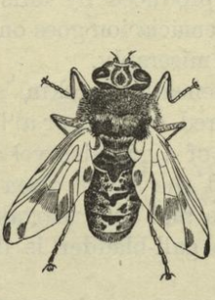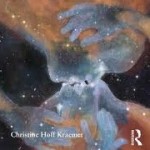
Recently, Stephen Fry was asked how he would respond if he met God. His response was entirely understandable within the context of Christian theology. If there is an all-powerful supernatural creator god, why does he/she/it allow hideous suffering like parasitic insects burrowing into the eyes of children? As Fry so aptly pointed out, who would worship such a god?
But what he has done is take Christian theology and turned it on its head, as so many atheists do. There is more to life than Christian theology. There is no supernatural creator god (as atheists have very ably demonstrated). That does not mean that the concepts of deity and deities are completely redundant, as a supernatural creator deity is only one possible mythological or theological construct.
Indeed, Fry went on to say that if he turned up at the gates of the afterlife and it turned out to be run by the Greek gods, he would have more respect for them, because they do not claim to be anything other than human in their appetites and capricious in their ways. I think even this is still too close to the idea of a creator (or creators), because the Greeks did not actually believe that the universe was created – and most ancient pagan creation myths actually acknowledged the existence of death and conflict as the very basis of the creative act (the killing of the giant Ymir in Norse myth in order to create the world, or the slaying of the dragon Tiamat by Marduk to make the earth, for example). But he is going along the right lines towards understanding the pagan worldview (both ancient and modern).
Yes, insects that burrow into children’s eyes are horrible, but they are neither evil nor good, they just are. They have their own agenda, like all other beings, and that agenda – finding something soft and squishy to lay their eggs in – happens to be massively in conflict with our agenda.
Right-wing Christians assume that humans are the pinnacle of “creation” and that the world exists for our benefit. Atheists often turn this on its head and claim that the universe is hostile, but fail to notice that we are just one species among other species. The universe is neither 100% hostile, nor is it 100% benign. There is food that we can eat, and oxygen to breathe, and most of the time, the temperature is about right (until we screw it up by causing unprecedented climate change). But the fact that we exist at all, as oxygen-breathing animals, is at the expense of the organisms that existed on Earth before the atmosphere had oxygen in it – and there was a mass extinction of those non-oxygen-breathing organisms when oxygen entered the atmosphere. One animal’s beneficial environmental feature is another animal’s deeply hostile environmental feature.
The world was not created for our benefit – indeed, it was not created. The sooner humans realise this and stop behaving as if we own it, the better. There are other sentient beings who deserve our consideration – elephants, dolphins, whales – all intelligent and sensitive. And the other (supposedly lesser) animals also deserve our consideration. That doesn’t mean that I would not kill the insect that was trying to lay eggs in a human eye – but I recognise that the insect is not evil, it is just doing what comes naturally to it.
Neither atheists nor Christians seem to consider that we could only have evolved in the environment we are in (and that the the same applies to nasty insects). The environment in which we live is generally quite hospitable, but it also happens to be hospitable to some things that we consider unpleasant. Monty Python nailed it with their wonderful send-up of All Things Bright and Beautiful, aptly entitled All Things Dull and Ugly. (Listen to it on YouTube here.)
Each little snake that poisons,
Each little wasp that stings,
He made their brutish venom.
He made their horrid wings.All things sick and cancerous,
All evil great and small,
All things foul and dangerous,
The Lord God made them all.
Yep, the universe contains both “all things bright and beautiful”, and “all things sick and cancerous”. This means that any theology worth its salt must deal with this fact somehow. (To be fair to Christian theology, it kind of gets around this by explaining that the Devil put the nasty stuff there, because he’s spiteful – but obviously there is still a flaw because in order for this to happen, the Devil must be just as powerful as God, and then you get Manichaean dualism, which is not allowed in mainstream Christian theology.)
The universe just is, as it is. Not created, not hostile, not especially benevolent, but many diverse beings and species, each with their own imperative to survive and thrive, and some of those in harmony with our imperative to survive and thrive, some of them in conflict. We have to learn how to manage those conflicts, not blame them on an all-powerful supernatural creator (or creators). As Terry Pratchett wrote, “There’s no justice. There’s just us”, implying that we have to create our own justice.
Pagan theology deals with the fact of death and predators and icky parasites by taking the view that there are many beings (including deities and nature spirits), all with their own agendas, their own imperatives for survival, some of which may be in conflict with ours. Lions and tigers and bears (oh my!) and sharks, and horrible insects, all have to eat, but we would rather they did not eat us. So, for the most part, we stay out of their way. Hurricanes emerge from the weather system and wreak havoc in their path, but this is an unfortunate fact of existence. Nature spirits also have their own agenda, and sometimes that aligns with ours, and sometimes it does not. That is why Icelanders take care not to demolish the dwellings of the huldu-folk (elves and trolls), and why British folklore advises against cutting down hawthorn trees, because the Fair Folk live there.
Pagan deities are not seen as all-powerful, but beings on their own journey, who may sometimes walk with us and help us. They are not there for our benefit, and we are not here for their benefit. Just as you make friends and forge alliances with other humans for companionship, or to further some collective goal like campaigning for social justice, the same applies to deities – we make alliances to further a common cause, or we make friends with them.
The universe contains both great beauty and great brutality (as Stephen Fry also acknowledged). You can’t ignore one and focus entirely on the other; they are both part of a complex picture. I recommend anyone who thinks that Nature is all fluffy bunnies and cuddly animals to spend a few hours on the Wikpedia category on parasitic insects. But for anyone who thinks that Nature is entirely hostile, go outside and bask in some warm sunshine, look at some nice trees recycling our exhaled carbon dioxide, and browse the list of edible foods that you can gather in the wild. And gaze up at the stars to be reminded of just how big the Universe is, and be thankful that you can behold such beauty, and reflect that you yourself are formed of atoms forged in the heart of a star.
















